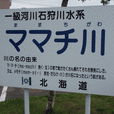Thai government mulls over regulations for locally-made AstraZeneca exports
-
-
Latest Posts
-
4
News Forum - Indian passengers turn Thai AirAsia plane into party zone (video)
So not only Americans? Making noise on public transport and flights is RUDE -
209
Life in the Isaan Boonies.
Bang on the monet there Bob. Didn't go to Ban Dung as planned yesterday; just too busy at the farm. The Mrs did though. I put the Bosch in a bag, and gave her 1000 Baht. And!? It came back fixed. 650 baht. Asked where my change was. ''Wash hair farang.'' One of the best things she has ever done. Got a new chuck-key too. Posted onto my facebook group 'Pussy shots'. Had to share. -
40
DTV & ..question..
Again, I have friends in KK and they haven't reported any issues. I have what I call a comprehensive list of documents Immigration may request, and that has sufficed for friends situated in KK. Only the oddball rouge office that may insist on a hand drawn map, rather than one printed from Google. First time application at a new office will highlight and differences. The home visits are usually only for the very first application based on Thai spouse to ensure the marriage is de jure and defacto, with witnesses to confirm such. What documents do/did you supply? -
40
DTV & ..question..
Thanks, Bob. All visitors, short or long term, have temporary permission of stay. Even those who obtain PR (permanent residency) still require a re-entry permit if they intend to exit and re-enter. Thailand doesn't want to give the same rights a Thai may have in your Country. It's all about the money they can extract from foreigners, either in the short or long term haul. -
40
-
-
-
New Topics
-
-
-
-
Tell a friend




Recommended Posts
Create an account or sign in to comment
You need to be a member in order to leave a comment
Create an account
Sign up for a new account in our community. It's easy!
Register a new accountSign in
Already have an account? Sign in here.
Sign In Now